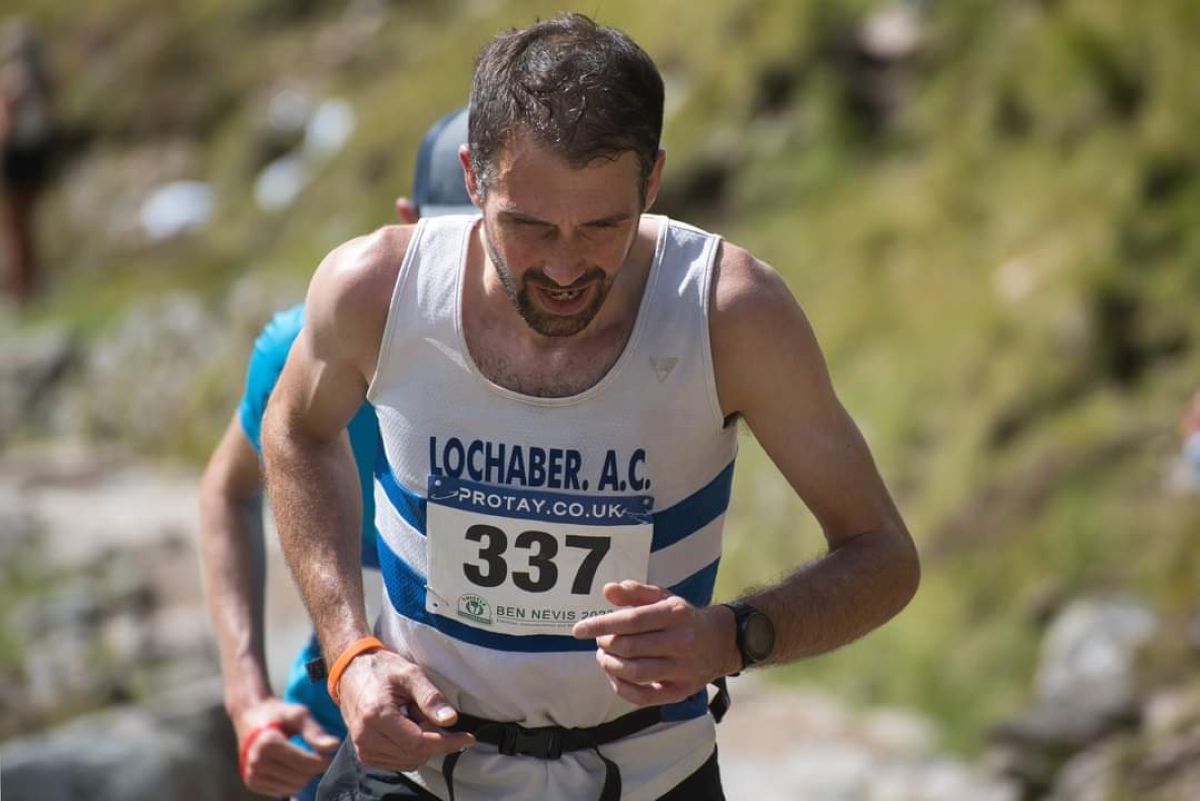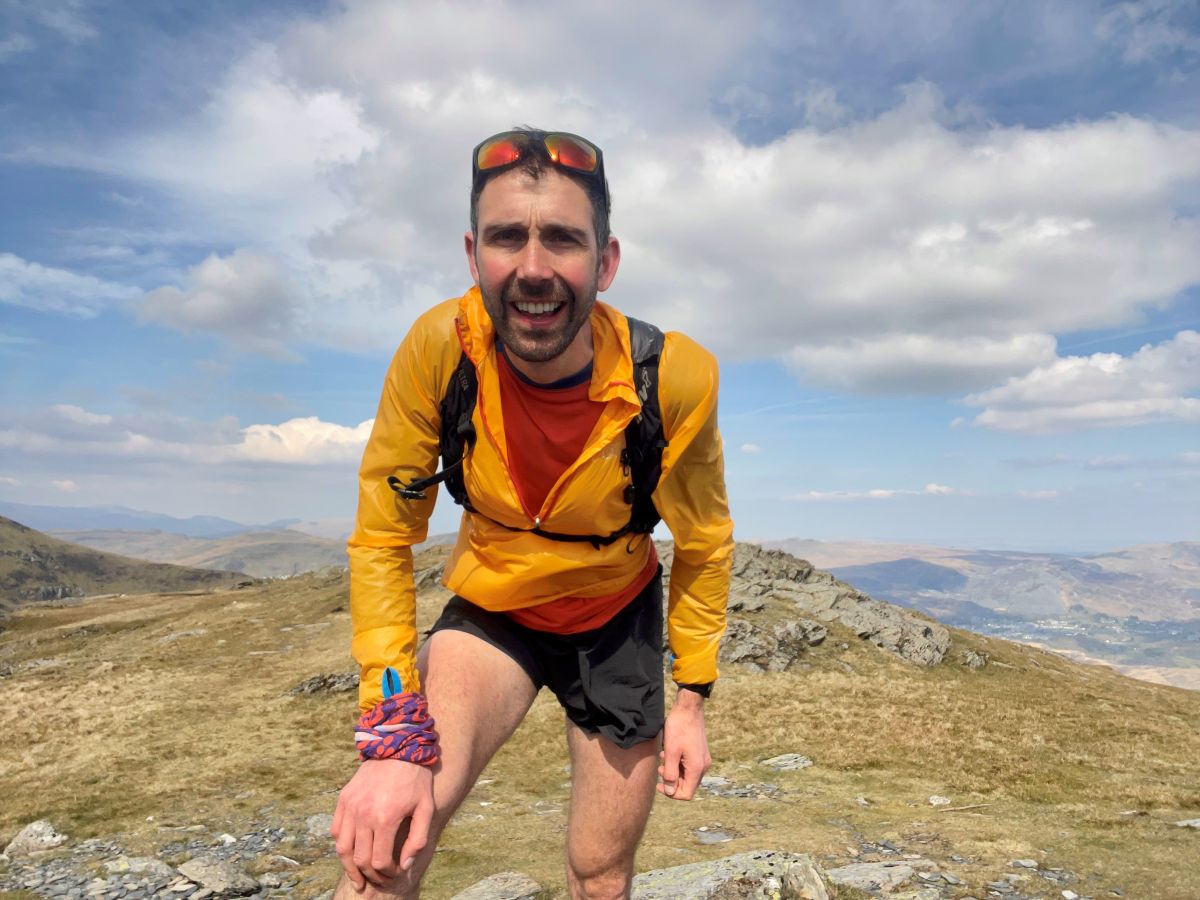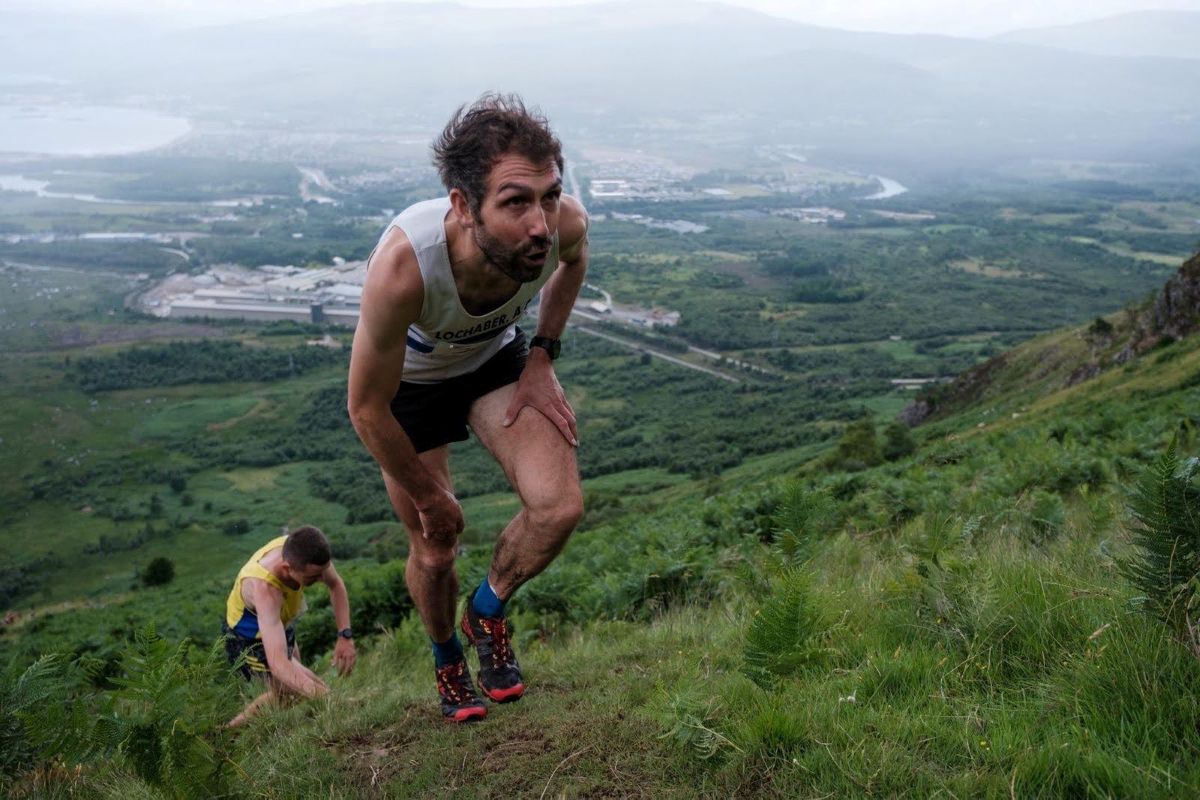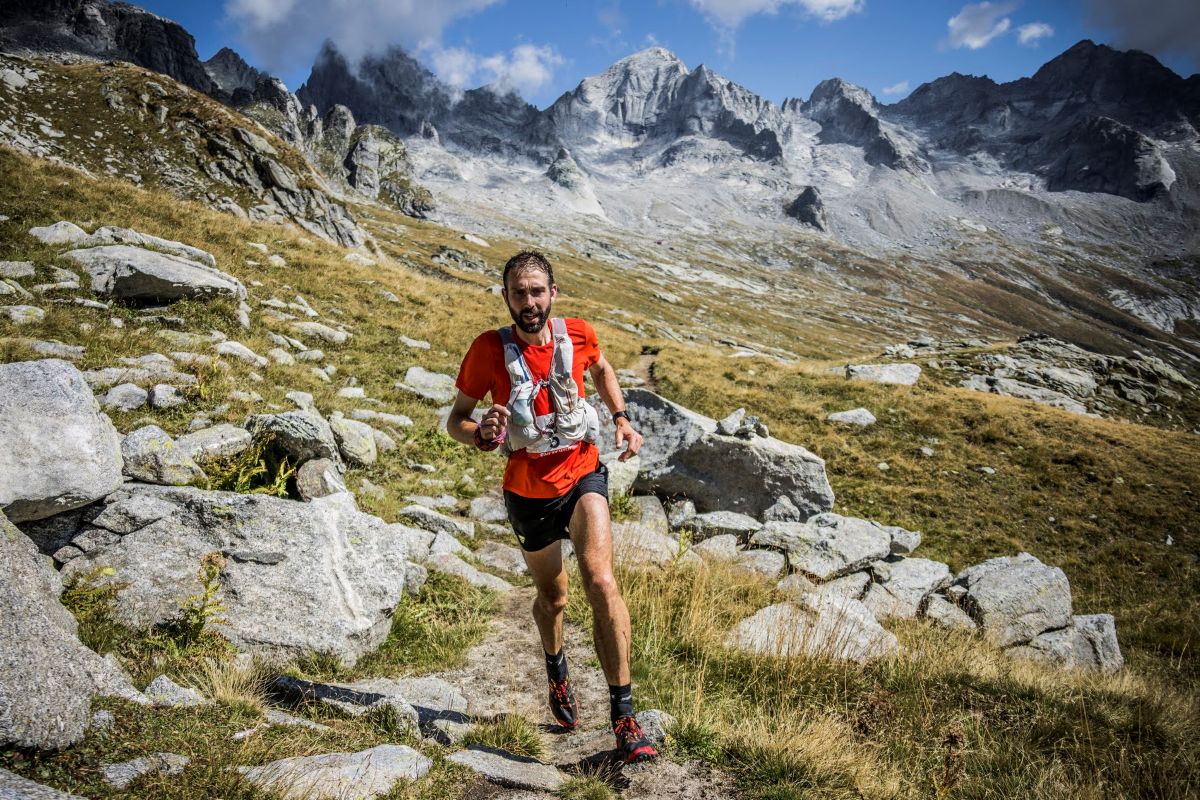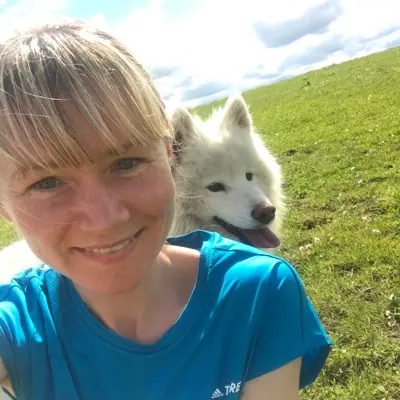During the first eight days in September of 1984, two major events took place to shape the history and future of Scottish hill running. Kenny Stuart set the still-standing men’s course record on the Ben Nevis Race — a race to the top and back of the country’s highest mountain — and Finlay Wild was born.
In the years that have passed since, Wild has won the iconic race 12 times, coming within a couple of minutes of Stuart’s seemingly untouchable mark. The modern Ben Nevis Race is now run on a longer course, so it would appear that the course record is sealed. To add to his achievements, Wild is twice the British Fell Running Champion, has run the third-fastest Bob Graham Round on record, just seven minutes over Kilian Jornet’s mark, has placed third in the Skyrunner World Series Sky Extreme category, and most recently set the course record on the iconic Trofeo Kima sky race in Italy.
The now 40-year-old, who juggles running and ski mountaineering pursuits alongside a career as a doctor, is still going from strength to strength. We caught up with him to hear his story to date, and to find out what else he has in the pipeline.
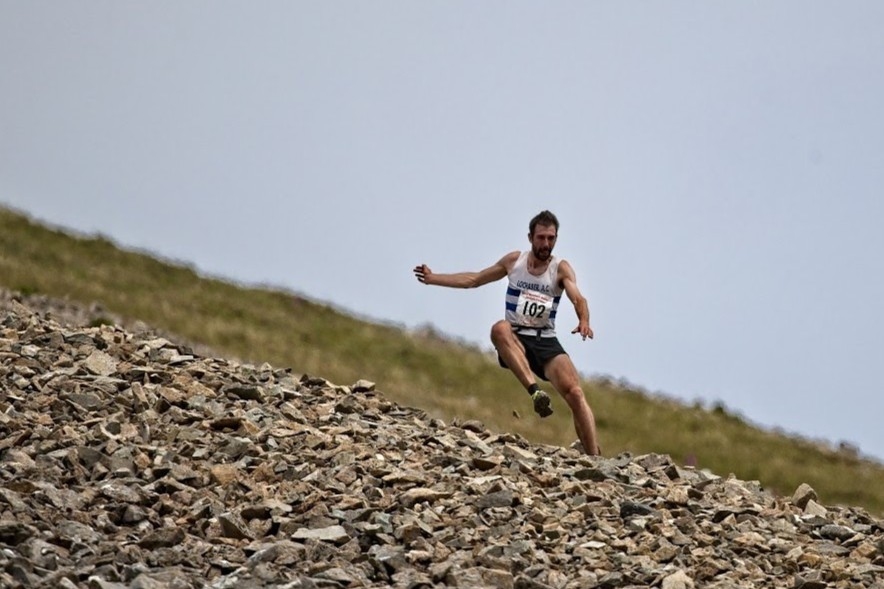
Finlay Wild on the way to winning the 2018 David Shepherd Memorial Glamaig Hill Race. All photos courtesy of Finlay Wild, unless otherwise noted.
Growing Up Outdoors
Finlay Wild was born in Thurso in the Scottish Highlands, and moved to Fort William — a town at the foot of Ben Nevis — when he was about eight years old. Wild’s parents were both runners and climbers, and his dad worked as a mountain guide, so the mountains and the outdoors played a huge part in his childhood. He said, “I was exposed to climbing, bikes, being outdoors, and running around in the mud from an early age. And where we lived in Fort William, you can see the hills and forests and mountains all around, so it was quite a natural thing to be taken there.”
He was heavily involved in scouting and outdoor pursuits as a youngster, but not so much in competitive sports. He said, “It was more just meeting my friends on our bikes, and I did quite a lot of sailing as well. I did a little bit of cross country at school, but not really racing, just cross-country club.”
When he went on to study medicine at the University of Aberdeen, Wild still found plenty of time to escape to the mountains. He said, “I was really keen on rock climbing and winter climbing, and so was going to the mountains more and more doing that. And then when there was bad weather or when no one else wanted to go, I would go and walk, and then it seemed kind of an obvious step to run. Gradually I started doing more running than climbing, and started racing.”
Scottish Hill Racing and the Ben Nevis Race
In 2005, Wild first dipped his toes in the hill racing scene — the Scottish equivalent of fell racing. He said, “There were just these local, grassroots races. I wasn’t really aware of ultras and sky racing … those races existed, no doubt, but not so much in Scotland. There might have been some ultras, but the general perception of how far people could or should run was a bit different.”
For the first few years, Wild kept his racing very low-key and local. In 2010, he caught many off guard with his first win of the already iconic Ben Nevis Race. He said, “It was kind of weird because I’d done some local small Highland races, and I’d done the Ben race before, but I think that was basically my first win — one of the biggest races in Scotland.” He added, “Being not really well known at all in running circles, that was really special.”
Just to show that his win was not a flash in the pan, Wild came back and won the following year, and every year, until 2023. He said, “I did 12 in a row. We missed two years for COVID-19.” Of his wins, some were more closely contested than others, with the gap to second ranging from 14 seconds to more than five minutes.
When asked if he would be returning to the race, he shared, “I think I’m done with it, to be honest. I’ve had some great experiences with it and a lot of good fun racing it, but I think it’s probably time for other things.”
British Fell Running Championships and International Skyrunning
Now earning a name for himself on the hill racing scene, Wild had ambitions to become British Fell Running Champion. The championships races take place between Scotland, Wales, England, and Northern Ireland, and Wild saw contesting the championships as an opportunity to explore other mountain ranges in the neighboring countries. He recalls almost winning in 2013, but a navigational error in the Mourne Mountains in Northern Ireland cost him victory. The 2014 championships didn’t go his way either, but he finally took the title in 2015 — alongside Jasmin Paris, who was crowned women’s champion.
In 2016, having raced predominantly around the U.K. and in sub-ultra distance events, Wild was ready for a different kind of challenge. He embarked on the 52-kilometer Tromsø Skyrace in Norway, part of the Skyrunner World Series. He said, “I was pretty late to come to even anything longer than 30k, and it was sort of a conscious effort to get more into skyrunning and the slightly longer stuff.”
Despite traveling to Norway to race a top international field, Wild found himself placing third on an all-British men’s podium, behind Tom Owens and Jon Albon. He recalled, “It was just such an amazing trip because I’d never done a race like that, or a distance like that. And the place, with the midnight sun. I did some exploring as well after the race, which was just great.” Tromsø is located north of the Arctic Circle, and in summer, when the race was held, the midnight sun offers continuous daylight 24 hours a day.
The race whetted Wild’s appetite for both longer distances and international racing, and he went on to contest iconic races such as the Livingo Sky Marathon, Limone Extreme, and the Zegama Marathon in the years that followed.
He was racing prolifically at home too, and won the 2019 Lakeland Classics Trophy, a league of highly competitive fell races that take place in the Lake District, England.
Upping the Distance with Mountain Rounds
Having reduced his working hours as a doctor to part-time to allow more time to race, Wild would have continued to contest international sky races in 2020, but for the pandemic.
Fortunately, in the absence of racing, Wild still had fastest known times (FKT) and mountain rounds to turn to. While already holding the FKT for his local Tranter Round, which is a section of the longer Ramsay Round in Scotland, and covers 20 summits over the course of 63k with 6,100 meters of ascent, Wild was able to improve his mark on the route by over an hour, setting a new standard of 9 hours and 5 seconds. He said, “That gave me the confidence to go for the Ramsay Round,” which is one of the big three U.K. mountain rounds. In August of 2020, he went on to set a new record on the 93-kilometer route, which takes in 24 summits and 8,700 meters of climbing, unsupported in a time of 14:42.
Since 2020, Wild has done some batting back and forth with the Tranter Round record with his friend and rival — and current Bob Graham Round record holder — Jack Kuenzle from the U.S. In July 2022, during Kuenzle’s time in the U.K., Wild reset his own mark on the Tranter Round to 8 hours and 52 minutes, a record that only stood for a single day. With Wild’s encouragement, Kuenzle broke it the following day with a time of 8:38. In June 2024, Wild took back the record in a time of 8 hours and 27 minutes.
The Bob Graham Round
In 2021, a year on from setting the record on the Ramsay Round and with the experience of a longer run under his belt, Wild took on what is probably the most high-profile ultra-distance fell running challenge in the U.K. — the Bob Graham Round. The revered route takes in 42 fells (hills) over a 106-kilometer course with 8,230 meters of elevation gain, and the record at the time was held by Kilian Jornet, who covered it in 2018 in a time of 12 hours and 52 minutes.
Quietly confident that he could get close to Jornet’s mark, Wild recalled, “We definitely had his split times and wondered how close I could get, but I don’t know if I actually dared to dream I could break it.” The distance was still fairly new territory for Wild, as was the style of running with a support crew, and he shared, “That was my second 100k-type run, but it’s the only real thing I’ve done fully supported.”
A challenge for Wild was that much of the fells on the route are smoother and more runnable than the Scottish mountains he was accustomed to, and he said, “It was really tough pushing that hard … There’s some rough stuff, but the terrain’s generally faster and more undulating, it’s kind of just the speed really.”
He didn’t manage to break Jornet’s record, but came in less than seven minutes over it, for what was, at the time, the second fastest Bob Graham Round ever run.
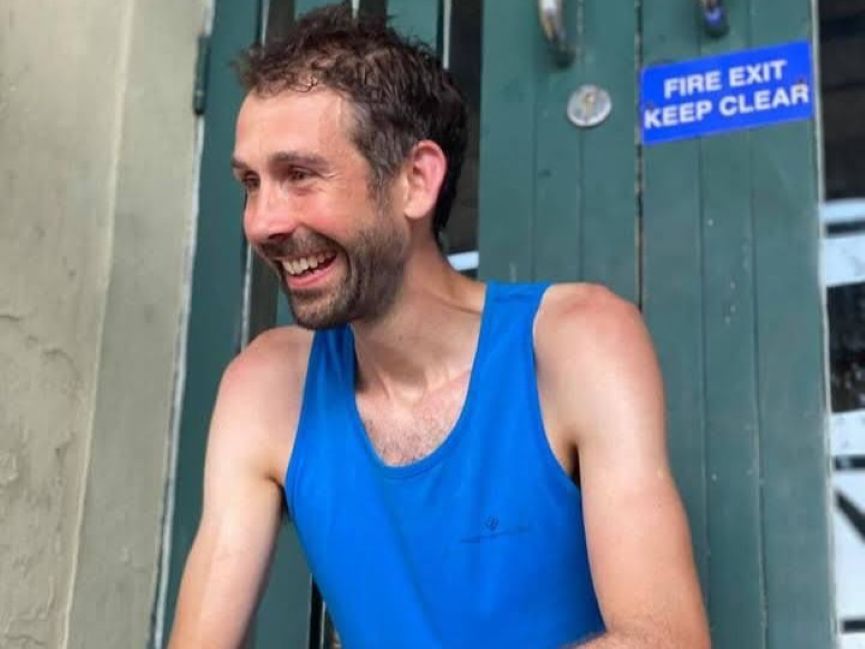
Finlay Wild takes a well-earned rest outside Moot Hall, in Keswick, England, after finishing the Bob Graham Round.
Not done with the route yet, but looking for a different way to experience it, Wild decided in December 2023 to level up the challenge by taking on an unsupported mid-winter Bob Graham Round. He said, “I just wanted a totally different experience. And we were thinking about what winter rounds are, variable in conditions, and trying to go when it’s darkest in the middle of winter. So, I set off on the very winter solstice.”
For the ultimate winter round experience, Wild aimed to complete the round within the hours of darkness on the longest night of the year, in the 16 and a half hours between sunset and sunrise.
Conditions were stormy on the night, and he recalled, “It was going to just be map and compass, solo unsupported, so no GPS. It was a really memorable experience, but I had to bail out about halfway around because it was just getting dangerous.”
Wild didn’t wait long to have another attempt, and came back a week into January, completing a solo unsupported round within the hours of darkness in a time of 15 hours and 35 minutes — at the time, the fastest winter Bob Graham Round on record.
Green Runners
Wild is involved with the organization Green Runners and aims to minimize the environmental impact of his running and general movement through the world. He summed up the Green Runners, saying, “It’s a simple idea to get people thinking about and talking about what they can do. So, it’s about travel, diet, kit, and activism — so using your voice to talk about climate change and climate change action.”
Out of the four main areas where Green Runners aims to reduce its impact, Wild cited travel as the most pressing and argued that being more intentional with travel is the single biggest change that runners can make to reduce their environmental impact.
He said, “One of the things is just to try and think about what you actually want, and what you get out of any potential race or trip, because there’s just so many events, and it’s definitely easy to fill up the diary with loads of events in faraway places.” He went on, “But some of my best experiences have been pretty close to home, in the amazing mountains of home, because I’ve got more of a connection, and more of a context to those places. It’s a deeper thing than if I was to fly off to Japan [to run a route or race.] I’d love to see Japan, but I don’t really have any specific connection to it.”
Not suggesting runners abstain from traveling entirely, he added, “I suppose when I’ve gone [overseas for a race] now and again — and I know not everyone can do this — but I try to go for a longer time. So, it’s not just arrive-race-leave, which can feel quite superficial, but to try and have a bit more time so you get more out of it. Be that having more time with other runners, or seeing the culture, or just having more of a relax and reset.”
For international destination races, including the Zegama Marathon and Trofeo Kima, Wild has availed of sustainable slow travel options via rail and sea. For domestic racing, he even covered some of the commute to the race by bike. One such example was when he won the 2022 British Fell Running Championships after having taken a train and then cycled to the race in England’s Yorkshire Dales.
He recalled, “It was quite a good way, I think, of trying to have perspective, because the trip wasn’t just about a race and a position. Even if the race had gone terribly, I would have been disappointed with that, but I still had the experience of cycling through a new place in the Yorkshire Dales as part of the trip, so it had a wider remit.”
Trofeo Kima
Wild has won the last two editions of the bi-annual 52k Trofeo Kima sky race in Italy, and most recently, took slower and more sustainable transportation to the 2024 race. He said, “We went by train, which we actually were quite looking forward to, because it feels like part of the trip. You’ve got your books and your snacks, and it’s quite a nice pace to approach and see the mountains.”
Much to his own surprise, Wild won the 2022 Trofeo Kima on his first attempt, and recalled, “The first time I won, it was one of those career goals that you kind of just dream of. I didn’t really think it would happen. But I think that terrain just really suits me as a runner because it’s so rough.”
Coming in a little over a minute above Kilian Jornet’s course record at the event gave Wild an obvious incentive to return for the 2024 race, where he was joined on the start line by Kuenzle. He recalled, “Last year it was this incredible race, because I was also racing with Jack Kuenzle, and we had a great history from the Tranter record.” Wild managed to beat his friend into second, and in the process set a new course record of 6 hours, 5 minutes, and 4 seconds.
He spoke fondly of the event, saying, “Italian races are special. The Italians are just so friendly, and the race atmosphere is great, and the food. It’s kind of lovely chaos.”

The 2024 Trofeo Kima men’s podium (left-to-right): 2. Jack Kuenzle, 1. Finlay Wild, and 3. Cristian Minoggio. Photo: Skyrunner World Series/Mauri Torri
Work As a Doctor, and Planning Ahead
While competing at Wild’s level would be enough for many to justify dedicating themselves to life as a full-time athlete, Wild has also kept up his career as a general practitioner. He said, “I do part-time, locom work at the moment. So, it leaves the time to race and train and have weather windows for these FKT-type projects, as well as some ski-mountaineering racing in the Alps in the winter.”
Keeping up his day job is important to Wild, who said, “I think it gives a really good perspective to running. It works both ways, because sometimes you want the release and the freedom of running just to relax after a busy day, to unwind. But also, the job gives good perspective because you see that a lot of people aren’t in a state of health where they can go out and get in the hills, and it also reminds me that running is not everything.”
Having covered so much of Wild’s history in the sport in our chat, the conversation turned to the present moment and current projects and plans. From a hammock in a cabin in the Lake District where he took my call, Wild candidly shared that he has been spending the summer training and racing in the fells with a view of making another attempt at the Bob Graham Round.
He said, “I’m doing lots of fell races, classic long fell races, on that slightly faster undulating Lakeland terrain.” He felt the terrain was an area where he lacked experience on his last attempt, and something he could improve upon with the goal of running a faster time.
Since Wild last contested the Bob Graham Round in summer, Kuenzle has lowered the record by some 30 minutes on Jornet’s time, to 12 hours and 23 minutes. While Wild humbly avoided expressing any expectation to beat that time, we will be keeping a close eye on his Strava for just that.
Call for Comments
Have you seen Finlay Wild in action? Tell us your stories in the comments.
